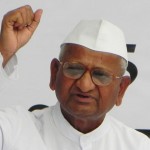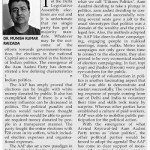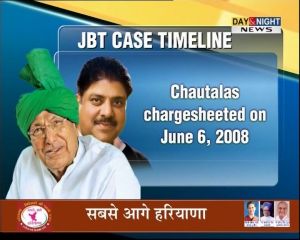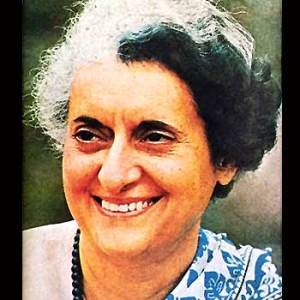Category Archives: Politics
Aam Aadmi Party:The shaker and Mover?
The results of Delhi Legislative Assembly elections held on December 4, 2013 are out. A total of 1.19 crore voters casted their ballots to decide the future of 810 candidates, 224 out of them being independent candidates. Congress party and BJP + SAD combine contested all the 70 seats, whereas the new entrant Aaam Aadmi Party, and BSP contested 69 seats each. The results were declared on December 8, with BJP alliance getting 32 seats, Aam Aadmi Party 28, Congress 8 and others claiming 2. The Sheila Dixit-led Congress party was rooted out, with its seats going down from 43 to 8. In terms of vote share, BJP received 34 % votes, AAP 30 % and Congress 25 %. By the time of submission of the article, the verdict is still not out as to who is going to form the government. BJP has emerged the single largest party, but is woefully farther from the magic number of 36 to be able to form the government.
AAP with a tally of 28 legislators has already declared that it would sit in the opposition and would neither seek support nor extend to any other party. With the entry of Aam Aadmi Party, the contest had become triangular. The media had predicted that the outcome would be a hung assembly, with BJP emerging as the single largest party. Whereas the prediction turned out to be largely true, what many experts did not realize the anger of the voters against the ruling party, decimating it to mere single digit number (8).
Whatever be the outcome of the results in terms of government formation, Delhi assembly elections are a watershed in the history of Indian politics. The emergence of Aam Aadmi Party has demonstrated a few defining characteristics in Indian politics.
Aam Aadmi Party has amply proved that elections can be fought with white money donated by public. It also has exemplified that if there is a will, money influence can be decreased in politics. The political pundits and cynics would never have thought that a newbie would be able to generate required money purely through public donations in a transparent manner. The party fought the whole elections with 20 Crores in coffers which included election expenses and organizational expenses.
AAP also set a new paradigm in Indian politics by deciding to implement what we call the phenomenon of primaries or caucuses as practiced in several parts of the world. The candidature of the aspirants for the assembly elections were decided at the primary level (constituency level), rather than the high ups in the party as is the tradition of several major parties in India.
AAP also stirred the Indian politics by rejecting the caste and community equation in fielding the candidates. In Delhi elections, caste and religion were not the primary basis of selecting a candidate and the election results have shown that it went well with the electorate.
These elections have demonstrated another interesting phenomenon of what we call “Citizen Politics”. Aam Aaadmi deciding to take a plunge in politics, aam aadmi deciding to contest elections and successfully winning several seats gave a jolt to the usual stereotypes that politics was a domain of the wealthy and the privileged few. Also, the methods adopted by AAP like door to door campaigning, engaging people in nukkad meetings, music walks, metro train campaigns not only gave them time to connect to the electorate, they also proved to be very economical models of election campaigning. In fact, topi (cap) and jhadoo (broom) were good eye catchers for the public.
The spirit of volunteerism in politics is another fascinating aspect that AAP was able to successfully demonstrate and sustain. The overwhelming response of people coming from out of Delhi and India to volunteer their time and skills took many by surprise. Whereas other parties have established a culture of paid workers, AAP was able to mobilize public participation for the political action.
With the emergence of what Arvind Kejriwal-led Aam Aadmi Party terms as “Clean Politics”, the other political parties would be forced to adopt the agenda! AAP has come in clear support of measures like political parties coming under RTI scanner, a stronger Lokpal Bill, electoral reforms like Right to Reject and Right to Recall. Thus, other political parties have been forced to re-look at their stands. And as we know, sometimes the political parties take up the agenda of the challenger to keep the latter at bay. It remains to be seen how much AAP would be able to shake up the existing political establishment, but undoubtedly the era of new politics demanding more accountability and transparency has arrived!
Strenghthening Loktantra via “Voty” festival
This election season has witnessed a high voter turnout. Assembly elections are being conducted in the states of Chattisgarh, Madhya Pradesh, Rajasthan, Mizoram and Delhi in the month of November and December, 2013. Voting is over in all the states except Delhi where voting will take place tomorrow,i.e., December 4.
One characteristic that has been common to all the states this season has been the pattern of high voting percentage. People of Bastar area of Chattisgarh- under the grip of Maoists- set the ball rolling in this direction. For just 18 assembly seats, Election Commission reserved one full day to facilitate voting under tight security and the voters of Bastar region did not disappoint! They came out in full swing to exercise their voting right, contributing to 67 percentage of the total voting. Rest of the Chattisgarh and then Madhya Pradesh, Mizoram and Rajasthan followed the suit and witnessed above 70 % voting.
While many factors can be accounted for enhanced voting, credit must also be given to Election Commission for playing role in creating awareness programs. One of the programs called SVEEP (Systematic Voter Education and Electoral Participation) was commissioned in all the states during recent times.
Delhi will be going for polls tomorrow (December 4, 2013). I have been camping in Delhi for last 5 months. It is sickening to hear the rants of some political parties making false promises and boasting their past achievements. But as soon as the election campaigning ended yesterday evening (48 hours from the scheduled end of polling), it was refreshing to see voter awareness ads taking over! (after all, FM radios and TV channels and news papers have space now!). Today while I was traveling via Metro train, it was a pleasure to hear via public announcement system at Metro stations, the appeal by Election Commission to people to exercise their voting right! A catchy advt by ADR at one metro station was quite interesting: Accept no money, no liquor, and do cast your vote!
After all, election season is a like a festival for voters and why not spare some time to create more awareness among voters about the importance of voting power! A vote fetches you no money (under ideal conditions), but it is a weapon that you can use to send an elected representative into exile!
Salute to Volunteers of Aam Aadmi Party!
The election campaigning for Delhi Assembly elections ended a few hours back today (Dec 2,2013). As per model code of conduct, the campaigning came to a halt at 5 PM today,ie, 48 hours before the end of polling.
I salute to hundreds of thousands of volunteers who have put in their time for varying length for the Aam Aadmi Party since inception. In last 1 year, Delhi has been witness to these self-effacing, committed party members or non-members from the city and all across India and abroad. Males and females, young and old, students and professionals, highly educated to ones with lesser academic certifications: Indians of all hue and color have marched to Delhi to give time to the party on their own with just one Mission: To help bring clean politics to Delhi (and hence, country). I have worked at the Volunteer Engagement Cell of the party for a considerable time and therefore am witness to a wide spectrum of talent offering its services just because they sensed that yes, this is an opportunity to bring a change in the political culture of India!
It is unprecedented in Indian political movement that an entire gamut of skills is filled in largely by volunteer force only. What initially started with India Against Corruption (IAC) volunteers joining the party (AAP), soon people of different ideologies and political affiliations started joining the work-force. Be it working on the ground or social media enthusiasts propagating the cause or phone calling to email responses to IT operations- all is being handled by volunteers. The movement in last one year has shown some remarkable characteristics of a true peoples’ movement. One peculiar feature that I would like to highlight is the self-initiative- Volunteers felt the need to do something and they initiated it. That is why, AAP is witness to so many blogs, Facebook groups, Twitter trends, WhatsApp groups, Google groups and websites created by patriots to strengthen the movement. And characteristically, volunteers across the globe did it. It was not merely restricted to a few regions. Enthusiastic volunteers have on their own organized Google hangouts, conferences and seminars to delve upon this emerging movement whose sole agenda is to change the way politics is done in India.
The journey is not over yet. But with the campaigning ending today, it is an occasion to remember the one year journey that volunteers of AAP have made it unforgettable with their love, affinity, hard work and zeal for the nation. Who says politics is something to be despised? Ask these freedom fighters who jumped in with the motto: We have come NOT to do politics, but to CHANGE it!
Anna: Please do not miss a chance
Well known social and political crusader Mr. Anna Hazare has re-launched his campaign against corruption today on January 30, 2013. The campaign named Gantantra Abhiyaan has been launched form the famous Gandhi maidan in Patna. Bihar is the birrthplace of Lok Nayak Jai Prakash Narayan.
 As the readers might re-collect, Anna Hazare had started the campaign under the title “India Aganst Corruption” (IAC) with Arvind Kejriwal in 2010. The whole movement was focused on a one-point agenda: to secure the passage of Janlokpal Bill. The movement caught up to the fancy of the whole nation and singularly brought corruption into focus. It was no less than a revolution, it seemed as if each and every Indian was rallying behind Team Anna. But there was a miniscule class of Indians who was not impressed. Miniscule but powerful! Yes, I am referring to our Parliamentarians. These “brown sahebs” did everything to diffuse and dilute the situation. Thus, even today the Janlokpal Bill is waiting to see the light of the day in Parliament.
As the readers might re-collect, Anna Hazare had started the campaign under the title “India Aganst Corruption” (IAC) with Arvind Kejriwal in 2010. The whole movement was focused on a one-point agenda: to secure the passage of Janlokpal Bill. The movement caught up to the fancy of the whole nation and singularly brought corruption into focus. It was no less than a revolution, it seemed as if each and every Indian was rallying behind Team Anna. But there was a miniscule class of Indians who was not impressed. Miniscule but powerful! Yes, I am referring to our Parliamentarians. These “brown sahebs” did everything to diffuse and dilute the situation. Thus, even today the Janlokpal Bill is waiting to see the light of the day in Parliament.
However, the IAC movement -frustrated by the unwilingness of the Parliamentarians to focus on the the reforms- got split, with Arvind Kejriwal esposing a direct political route. Even with the huge surge in the momentum of IAC movement, the whole phenomenon would be best labelled as fence-sitting! To grab the bull by horn, you have to get into the ring and that was what Kejriwal advocated: He and some of the core members walked away to form a political party now called Aam AAdmi Party.
Thus, Anna was left with IAC in September 2012. After a few weeks of debating the issues, Anna too relinquished the bannerof IAC (now IAC is a separate movement, headed by one gentleman Sarbajit Roy and his team) and decided to re-launch his agitation under his own NGO’s name.
Loksabha elections are hardly 14 months away (will take place sometime in April of 2014). Mr Anna Hazare might have experiences that such huge movements launched by civilc society organizations can serve only ONE purpose: they can create awareness and educate. But anti-corruption movements can not CHANGE the law (unless, we have a feature called INITIATIVE, where a bill can be initiated by the public and legislation has to take it up and pass it into a law, depending upon the provisons specified). Howver, Indian public does not have this privilege (by the way, Aam Aadmi Party supports this reform).
Thus, what the re-ignited movemnet of Shri Anna Hazare can do at the best: Keep educating the public about enormous corruption that exists in our system. Nothing more! Mercifully, even an illitrate person understands that corruption is a deep-rooted virus in our system.
Whatever, Anna’s reservation might be about the direct politcial plunge. Here is a golden chance for Anna and for the nation. Since he started his movement from Patna, taking inspiration for LNJP, he should go for a direct political plunge. He should oversee the formation of a politcal front, of which AAP and like minded parties -whose key focus is on reforming the system- get together and defeat the suckers!
It will be a tactical move that has the potential to liberate India from fedudal political parties and usher a new era of politics. The new conglomerate can then go for reforms that would give our system a new lease of life.
Afterall, it is the poor policies that promotes corruption and inefficieny and malgovernacne.
Anna ji, the nation looks upto you for this transformational role! Please consider!
Republic Day Musings
On the eve of Republic Day (January 26), as I read the latest article in India Today (Feb 4 issue) titled “Mood of the Nation“, I feel a bit somber.
The major current political parties have been taking us for a ride. It is indeed a matter of concern that the ruling Congress party has increasingly become dictatorial in nature, thus showing utter disregard to the matter of governance. The current regimen has seen plethora of corruption scams, the ministries milking the country. The Prime Minister MMS is subservient to Sonia Gandhi and Rahul. His silence matches that of sphinx. The regimen has also not hesitated a bit to curb the freedom of expression. Law and order situation does not instill confidence. Economic conditions in the country are characterized by high inflation rate, growing urban-rural divide, ever-thriving black market (as much as 50 % of our economy is black) and failure to carry on promised reforms. And, pandering to the minorities has been one consistent plank for them. The opposition is also in shambles, thus ruling out an effective check on the government.
The glaring lack of focus on bringing in reforms in the governance shows apathy of our political classes.
The anger frustration in the public and particularly the youth is palpable. Thanks to the unifying force called Internet, the people rather than depending upon the conventional media, have started changing the discourse of politics. Facebook and Twitter shows aspirations, frustration and ideas being churned out by the people 24×7. And there are growing voices- never heard before through the usual media- over the Republic Day. Some have not felt inhibited in saying that ours is a banana Republic.
Should we feel pessimistic? No, not at all! But unless we the citizens make active efforts to rejuvenate our society and the nation, things can not change. And this starts with a simple mantra: “Understanding our rights as well as duties”. I hope that sums up all.
These are some of the sentiments that come to me spontaneously on the eve of Republic Day. I will end the piece by emphasizing the importance of public participation in a “re-PUBLIC” via this quote: “Every government degenerates when trusted to the rulers alone. The people themselves, therefore are its only safe depositories.”- Thomas Jefferson ((1743- 1826).
Chautala a product of bad system of politics
This is not a small news! Three days back (January 16) Haryana’s former Chief Minister and regional satrap Om Praksah Chautala was found guilty by a CBI court in the JBT teachers recruitment scam. He has been sent to Tihat Jail and the sentencing is awaited. Nothing can be more disgraceful for him and his family and supporters than the fact that Mr Chautala is spending nights in Tihat Jail while awaiting his sentencing. It is a big blow to his INLD party. His one son Ajay Singh Chautala is also lodged in jail along with him. Here is the link to the news.
The court orders tell a damning story about the misdeeds that he did in this scam. I quote from a news published in The Times of India:
“Profuse evidence is available on record to show that it was Om Prakash Chautala, who was managing the whole affairs. First he took out the JBT vacancies out of the purview of Staff Selection Commission, then he increased the interview marks from 12.5% to 20%. However, he could not materialize his intentions due to prevailing political situation where he was running a coalition government. As soon as the Indian National Lok Dal got full majority of its own in the elections held in February-March 2000, the opportunity to execute the conspiracy was available,” special CBI judge Vinod Kumar said.
The investigation had revealed that two officers in the education department were transferred intentionally. “When R P Chander ( IAS Office), the then director of primary education, moved the proposal to declare the results on April 24, 2000, he was transferred two days later. Thereafter, Rajni Shekri Sibal (IAS) was brought in as director of primary education. She was asked to change the award lists by Sher Singh Badshami, political advisor to chief minister inpresence of Vidya Dhar (officer on special duty to the CM) as well as in the presence of Ajay Singh Chautala (Chautala’s son) and they were all acting under the directions and wishes of Om Prakash Chautala. When Sibal recommended compilation of the result vide her note sheet dated June 20, 2000, she was also transferred on July 11, 2000 and accused Sanjiv Kumar was appointed in her place,” a CBI officer said.
Chautala – son of much revered late Tau Devi Lal- has always been looked upon as a notorious man. His party and actions by his party workers roughly equate to politics of confrontation, hooliganism and casteism. The Hindi expression of ‘lathmaar rajneeti’ aptly describes the methods his party has resorted to in the past. In the words of noted educationist and anti- Khap panchayat activist Mr Daulat Ram Chaudhry: “Chautalas are more crude, arrogant and aggressive once they are in power.” And many would agree with these sentiments. Chautalas -when in power- unabashedly sold govt jobs (rather than selecting by merit), showered favoritism and nepotism in recruitments and appointments.
The Problem Lies with the System:
Chautala is a manifestation of our system of politics and governance. The media and public gets a feeling of gratification when such criminal-minded politicians are caught. These become headlines. But unless we reform the system, many more Rajas, Kalmadis, Kandas, Chautalas, Sibu Sorens will keep popping up and would be replaced by their other politicians and babus with similar tendencies. The real succor will come when rather than chasing these individuals, we get a system in place that deters such scams and prevents corruption. After all, prevention is better than cure! Some of the current practices that lead to such outcome are:
1. Lack of transparency and accountability in the system. This encourages the politicians and bureaucrats to subvert the system.
2. Undue political interference in police and investigative system (eg, CB.
3. Slow and lethargic judiciary.
3. Lack of citizen oversight. It is ironic that India’s 250 million middle class is still indifferent to politics.
What is the panacea?
Unfortunatley, there are no short cuts. The system needs an over-haul. Unless we witness radical reforms in the fields of electoral practices (eg. negative voting), police (less political interference), judiciary (swifter justice) and civil services (performance-based promotions), things are unlikely to change. Focal reforms here and there will not be very effective. Also, the concept of de-centralization in governance as well as political practices should be promoted. Above all, citizens need to keep an oversight on their elected representatives. For citizens, this saying comes handy: “Freedom is never free and liberty is never guaranteed”! The liberty from corrupt and incompetent babus and politicians will come more readily if we keep a tab on them!
Why I joined Aam Aadmi Party
On November 26,2012, India witnessed the launch of a new political party- Aam Aadmi Party (AAP). In India’s multi-party democracy, there are hundreds of political parties, so what is the big deal about it! I would say that the launch of the Aam Aadmi party is really a big deal. It is a watershed phenomenon in Indian polity. With the fresh optimism around, let me give you some reasons as to why I joined this party and support my decision.
Launched with the aspiration to fulfill the common man’s dream of clean, accountable and just governance, Aam Aadmi Party has included some innovative and unique concepts in its core character right from the beginning, viz. Swaraj (de-centralization in administration), intra-party democracy (key elements being, selection of the candidates at the local level for elections and internal Lokpal for the party affairs). It is fair to say that the Aam Aadmi Party- borne out of the struggle for Jan Lokpal Bill- will shift the agenda of mainstream politics in our country. At the same time, it is worth noticing that while the current political culture in Indian evokes a sense of despondency, Aam Aadmi Party is attracting the idealist youth to it with a new vigor.
2. Loot and scams in the name of Governance: Rather than serving their people by providing clean and efficient governance, the elected representatives have become self-serving. Scams are happening at the pace never seen before! The impact of this moral debasement is palpable on all streams of administration, viz judiciary, police and civil administration.
– Under this concept, Arvind discusses how the principle of Swaraj will empower Gram Sabhas and Ward -Councils to make local governance more powerful and in the hands of people. Put in other words, Swaraj talks of the concept of “Direct Democracy”.
– In Economic de-centralization, the revenue collection – a part of that- should be allowed to be spent by the local governments (panchayats or municipalities). in other words, (some of the ) planning should happen at the local level , rather than being imposed from the Center and similarly, the local governments should have the discretion to spend the revenue for local development.
You may not agree with each and every suggestion that has been given by Kejriwal and team in the book “Swaraj”, but it goes beyond saying that the principle of Swaraj- that Gandhi ji also so dearly espoused- will go a long way in bringing the power back to people.
2. Intra-party Democracy: The way the parties have concentrated the power and influence in the hands of chosen few, even the very idea of joining a political party for a conscientious man is repulsive. Moreover, what meaningful a common man contribute through the political action (otherwise a very noble field) when you see that political parties have become dynastic and feudal in nature (think Sonia, Mulayam, Chautala, Mayawati, Mamta, etc). To fight this hazard, AAP has included 2 fundamental principles in its constitution:
a] Selection of the candidates for the elections by the local party-workers. Tickets for the election will not be distributed from the above (high-command culture).
b] Internal Lokpal: As the first step towards bringing accountability within the party cadre, AAP has appointed 3 Lokpals who would take up the complaints submitted by the party-workers against any party-man.
3. Transparency in party Funding: AAP has declared that it would keep its accounts open to public. This is a major decision in contrast to the nebulous accounting practices that almost all the other political parties are indulging in!
In addition to this, AAP is seriously working on pushing for electoral, judicial and administrative reforms. This is a fresh air when you see that the current political parties work hard to stymie reforms as much as possible.
Launched with an idealism, Aam Aadmi Party has the potential to change the political debate and discourse of the country. Will it succeed while the current political milieu in India is synonymous with the potent mixture of “Money-muscle- lung power”? Also, there is a saying that where the institutions of democracy are weak, demagogues thrive!
Already, the party is attracting the motivated youth with a new vigor. However, a new political movement can not grow and succeed unless the common man identifies himself or herself with the party. Equally critical is the strong support of educated, intellectual and established section of the society.
The dismal political scenario in the country has created a chance for us! Yes, the aspirations of the masses seem to have resulted in a crystallizing effect to create a political movement called Aam Aadmi Party. This is a chance for us to change the political culture and discourse of our country. A fresh breeze is around the corner. Smell the sweetness and be a part of this!
I will end my post with these 2 quotes:
“Just because you do not take an interest in politics doesn’t mean politics won’t take an interest in you. ” Pericles
The biggest problem in this world is : The Intelligent People are full of doubts, while the stupid ones are full of confidence !
Indira Gandhi: Symbol of Ills of Indian Politics
Today (November 19) is the birth anniversery of Indira Gandhi, the late Prime Minister of India.
I have a few observations to make on this occasion.
Indira Gandhi took a strong position and truly owns the credit for creation of Bangladesh. When uncontrolled migration of people from East Bangladesh started increasing, she took this as an opportunity to draw the global attention to this hazard for India. RAW was given free hand to infiltrate in East Bangladesh to turn the tide against Pakistan and when the time for military operations became ripe, she let the army do the rest.
Understandably the Indo-Pak war for in Eastern Pakistan (now Bangladesh) did not please the US. She did not fear the super-power at that time and created the course that was in favor of her own country (India). Even her open distaste for the then US President Nixon was truly daring and remarkable. Despite the convictions that the Secretary of State Henry Kissinger had, President Nixon just hated the lady as well as our country. However, Indira Gandhi was not to be put down too! The 1971 meeting between president Nixon and Indian PM Indira Gandhi was a “classical dialogue of the deaf” as Henry kissinger sensed.
But Indira’s legacy to India is unfortunately full of ills. Her regimen was a watershed in Indian politics where the preceding era was characterized by men of integrity serving the nation (at least they were not corrupt), like Nehru, Patel, Shastri and many more. She initiated the systematic indulgence of corruption in politics and governance and centralized power around her, belittling the concept of intra-party democracy. The country continues to suffer from these phenomena till today.
She took socialist economic model to a further height, thereby delaying the liberalization of economy (and the consequences are easy to understand). The nationalization of banks, increasing Inspector -License-Raj are her gifts to the nation, further increasing the state-control on markets, thereby hampering the growth. She was a deeply corrupt politician and was so insecure within Congress party that she ultimately led to her own party. The undemocratic elevation of Sanjay Gandhi was harbinger of family -politics on Indian political landscape. Punjab terrorism was her own creation, but I am happy to note that she crushed it with an iron hand when it went overboard. And who can forget the Emergency!
Note: Nov 19,1835 was coincidentally the birth day of LakshiBai, the Rani of Jhansi! I shall leave it to the readers to indulge in the pleasure of comparison!
Freedom Team of India
 |
| Logo of Freedom Team of India |
We are looking for leaders who want to transform the Indian system of governance and politics. The current political parties- starting form Congress and BJP to regional forces like DMK, BSP and Samajwadi Party (SP) – have no short term or long term vision and perspective to curb corruption, deliver better governance to an extent that it brings succor to us. Their economic policies are at the best socialist. The free-market concept and ideas of liberty do not appeal to them , as they want to continue vote-ban politics by offering populism, quotas and catering to interest groups.
India needs a revamp of the system where democracy can thrive on the principles of freedom of expression, liberty and free market policies.
We need leaders who are willing to join hands to bring revolution to India. Here is the link for Freedom Team of India. This is not a chat group, nor a think tank. This is a political group (not yet a political party). I invite you to have an in-depth study of the concept.
www.freedomteam.in





